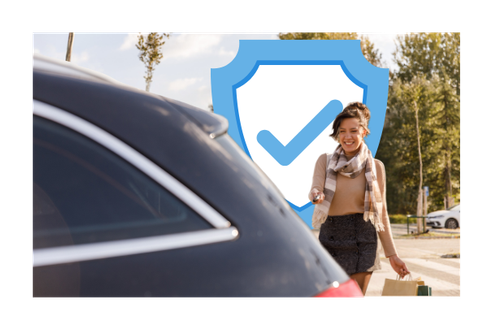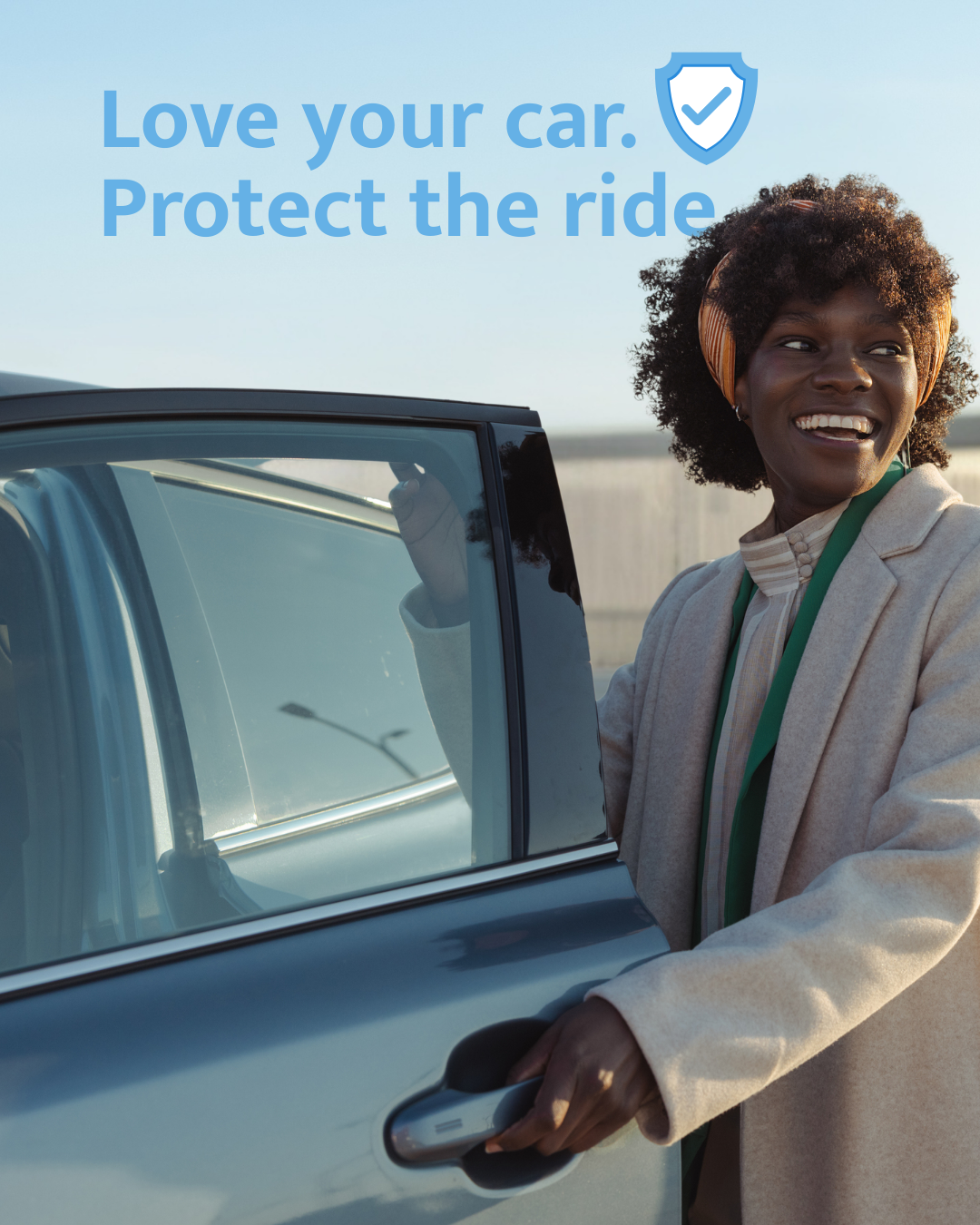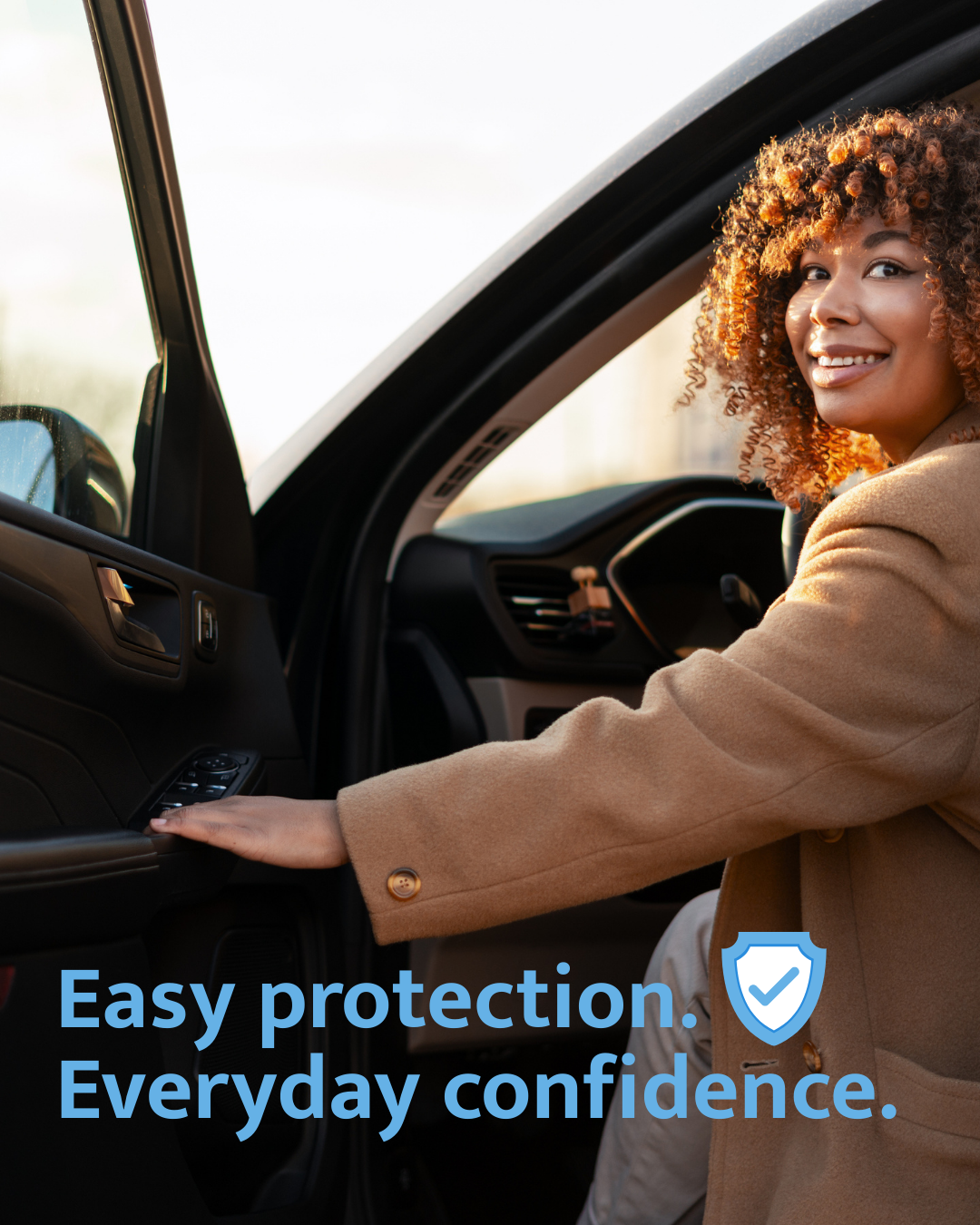

Park it. Lock it. Enjoy the day.
The little things make a big difference.
Keeping your vehicle safe doesn’t have to feel stressful. A few simple habits can help protect what gets you where you need to go.
Keep it Simple. Stay Confident.
Essential Tips to Prevent Auto Theft
Auto theft happens, but the good news is that most incidents can be prevented with small, practical steps. You don’t need to be an expert or spend a fortune — just a few thoughtful habits every day make a big difference.

Small Habits. Big Peace of Mind.
A few easy steps today can help protect your vehicle tomorrow, so you can spend more time enjoying the journey and less time worrying about what might happen.

Secure Vehicle
Use a steering-wheel or brake lock for extra security.

Protect Key Fob
Keep it in a Faraday pouch to block signal hacks.

Install Immobilizer
An aftermarket immobilizer can stop thieves fast.

Lock Doors
Lock all doors and park in a garage when you can.

Smart Parking
Park your less-loved car closer to the street.

Hide Valuables
Keep bags and electronics out of plain view.

Turn Off Car
Step away? Turn off and lock your vehicle.

Use GPS
Add a small tracker to find your car if it goes missing.
Explore Our Blogs
Get tips and insights to keep your car safe while enjoying peace of mind.

Follow the tips above and take a few simple habits to keep your car safe. Enjoy peace of mind every time you hit the road!
FAQs
Answers to common questions about keeping your car safe.
+ Worried about your car being stolen or broken into?
Many Canadians worry about car theft, even if they’ve never experienced it. A 2023 survey found nearly half of Canadians were concerned about break-ins and theft. Staying proactive with simple habits can make a big difference!
+ Is my vehicle on the most stolen list?
Theft can happen to all types of cars, from economy to luxury. Lists of commonly stolen vehicles change by province, so it’s smart to stay aware and take simple precautions, no matter what you drive.
+ Why are so many cars being stolen?
Cars are stolen for parts, overseas sales, or even just for fun. Simple things like steering-wheel locks, GPS trackers, and parking in safe spots make it harder for thieves and give you peace of mind.
+ What should I do if my car is stolen?
- Call the police and give your car’s details (make, model, color, VIN).
- Notify your insurance company to file a claim.
- Inform your local vehicle registration authority.
- Check bank and credit accounts if personal info was inside.
- Spread the word on social media and community boards.
® 2024 CAA Insurance Company. ®/TM CAA trademarks are owned by, and use is authorized by, the Canadian Automobile Association.(1041903-04/24)





